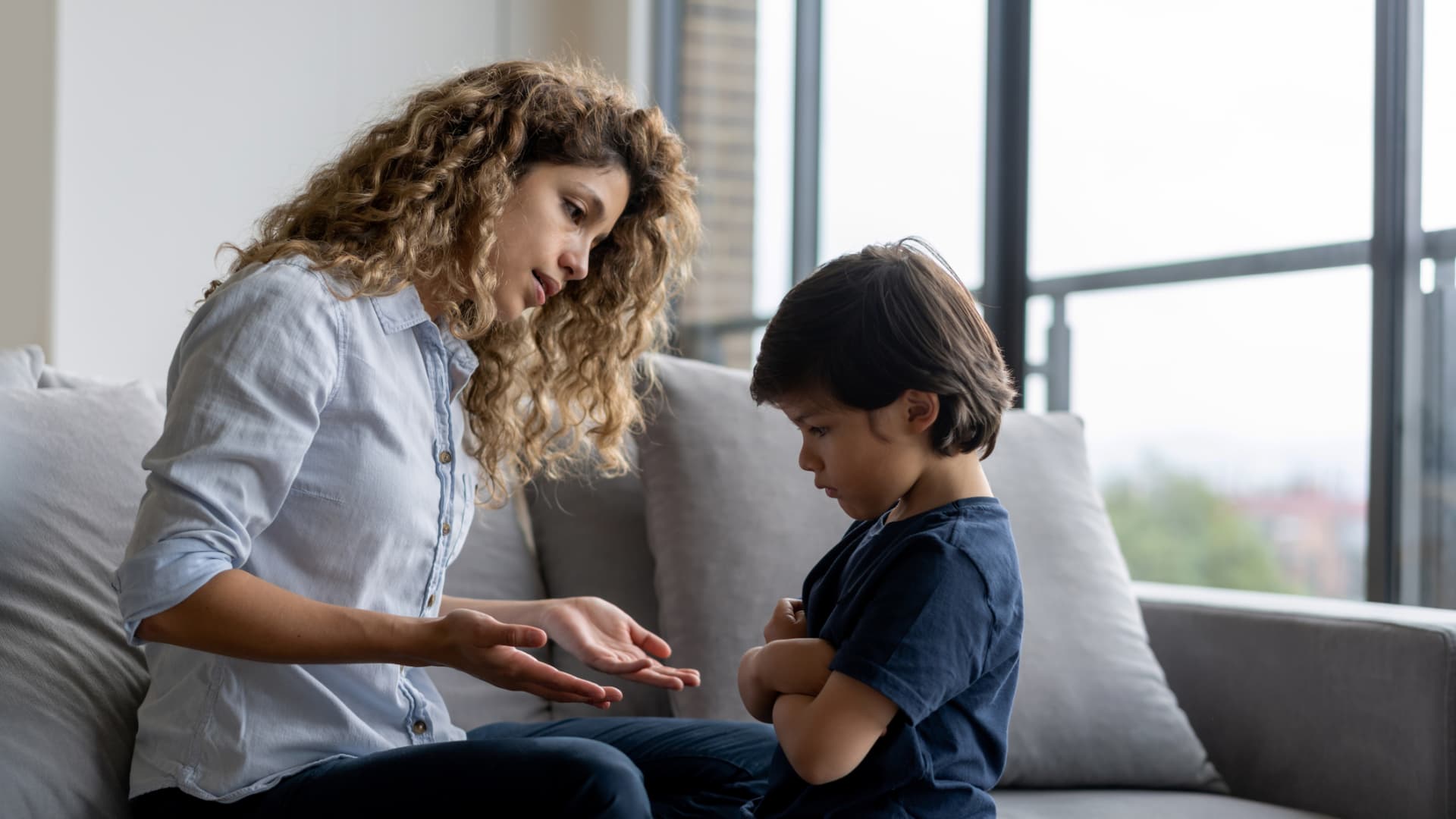About half of moms and one-third of dads are making New Year’s resolutions related to their parenting, according to a new University of Michigan survey of 2,044 parents who have kids under the age of 18.
One goal 47% of parents said they are setting is to be more consistent with discipline. And 78% of parents say they are going to strive to be more patient in 2024.
If you have trouble enforcing rules with your kids, you may want to try “responsive parenting,” Mona Delahooke, a child psychologist and author of “Brain-Body Parenting: How to Stop Managing Behavior and Start Raising Joyful, Resilient Kids,” told CNBC Make It earlier this year.
This is a combination of a more gentle parenting style and a traditional, authoritative one.
“The hype around parenting styles has taken us away from the more relevant question: ‘What does my child need at this moment?'” Delahooke says.
Most children would benefit from a mix of both structure and empathy. You can discipline your child and set firm boundaries, while also acknowledging how they are feeling.
“Kindness and firmness are not oil and water,” she says. “They can go together.”
‘You have to teach a child to regulate’
Let’s say your 4-year-old is throwing a fit in the grocery store because you won’t buy them a snack. Your knee-jerk reaction might be to scold them.
“Not only do you get mad at them, you blame them for being rude or you assign a motive that is negative to a very normal process of a child seeing something at the store and wanting to get it,” Delahooke says.
Instead of expecting them to act like an adult who knows how to handle unpleasant feelings, meet them where they are.
“They haven’t gotten the circuitry of self-regulation built yet,” she says. “The ability to accept disappointment and unpredictability and talk yourself down, that’s a very long developmental process that most children don’t have until they are older.”
The ability to accept disappointment and unpredictability and talk yourself down, that’s a very long developmental process.
Mona Delahooke
child psychologist and author of “Brain-Body Parenting: How to Stop Managing Behavior and Start Raising Joyful, Resilient Kids”
This doesn’t mean you buy them a snack, she says. Instead of yelling at them, though, you stay calm and acknowledge that it’s understandable to be upset when you don’t get something you want.
This is scientifically proven to pacify your child.
“When disappointment is compassionately witnessed and you are emotionally soothing, the child’s brain and body stress response is reduced,” Delahooke says. “An adult’s caring presence changes the way a child’s body and brain responds to stress. It reduces the stress hormones.”
It also helps a child learn how to handle difficult emotions.
“You have to teach a child to regulate,” she says. “You build self-regulation through relationships of safety and trust.”
And all of this can happen without you yelling at your child, or giving into their request, Delahooke says: “You can have sturdiness, set boundaries and limits, and provide emotional safety at the same time.”
DON’T MISS: Want to be smarter and more successful with your money, work & life? Sign up for our new newsletter!
Get CNBC’s free Warren Buffett Guide to Investing, which distills the billionaire’s No. 1 best piece of advice for regular investors, do’s and don’ts, and three key investing principles into a clear and simple guidebook.








